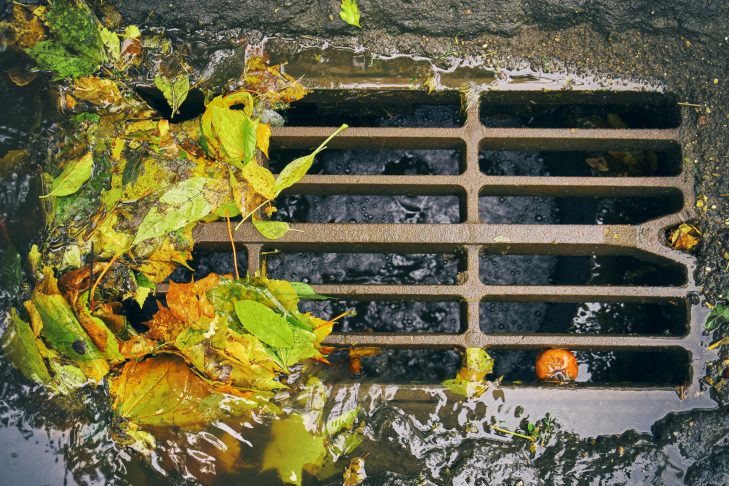Why is it that whenever we experience droughts our first inclination is to pray?
From Moses and the Israelites to today’s politicians, praying for rain seems to be a knee-jerk reaction. Water shortages. Droughts. No rain. Many believe this constitutes cause to turn our eyes heavenward and cry out to God to make it rain.
Certainly it’s not shocking to read about Moses doing this multiple times during the Exodus from Egypt. Whether or not you are religious, as a matter of water policy, it’s quite disheartening, even disturbing, to hear about our modern leaders doing the same.
In 2007, amidst a severe water crisis in Georgia, then-Gov. Sonny Perdue called together a rally where he shared his plan to solve drought conditions. “We’ve come together here,” said Perdue, “simply for one reason and one reason only: To very reverently and respectfully pray up a storm.” In 2011, Gov. Rick Perry did the same. As did the mayor of drought-stricken Cape Town in 2017, or most recently the members of the South West Queensland Mayors Council in Australia. “We’re praying that God would intervene and bring drought-breaking rain,” they said. “We’re praying for that and believing for it!”
This is not only a ridiculous and pathetic way to approach water scarcity, frankly it’s an insult to the Supernal Water Manager on High.
I’m reminded of the moment in the Torah when the Israelites are being pursued by the Egyptians. They run smack into the sea, panic and Moses turns to God in prayer. “Please help us,” cried Moses. What was God’s response?
God didn’t part the seas right away. God responded, “Why are you praying to me? Now is not the time for prayer. Now is the time to swim!” (OK, not a literal translation, but pretty darn close.) Or, in the words of the Bedouins, “Have faith in God, but first tie up your camels.” Pray all you want, but first tie up your camels before you go complaining to God that they somehow wandered away!
Would we say we want to lose weight while eating donuts, not working out and simply calling out to God to help us shed some pounds? Would we say we want more money while not working, not saving, not even buying a lottery ticket and simply expect our prayers to translate into gold? Ridiculous! But this is exactly what we are doing with our prayers for rain.
Take the U.S., for example. Here we flush our drinking water down the toilet (literally) and simply let our treated sewage go unused, wasted, flushed out to sea. We live with antiquated water infrastructure, not wanting to spend our tax dollars on upgrading decades-old water pipes. (In what other area of modern life do we accept 50-, even 100-year-old technology?) As a result we lose roughly 30 percent of our water to leaks (over a trillion gallons a year). And when it comes to irrigating crops (which uses 70 percent of our water supply), we are still engaging in inefficient and archaic irrigation practices developed in Mesopotamia thousands of years ago (losing up to 90 percent of this water when we flood irrigate). In other countries, and throughout the developing world, statistics are worse.
Instead of leading with prayer, perhaps we should lead with better policy, practices and solutions to water problems, like the Israelis do. Israel has risen as the Aqua Nation, a water superpower and leader because:
- Israel treats nearly all of its sewage and then reuses 90 percent of it to irrigate the crops.
- Through various technologies and infrastructure investment, Israel has reduced its water leakage to less than 10 percent.
- Israel banned flood irrigation years ago. Israel, the birthplace of drip irrigation, the world’s most efficient irrigation method, grows its crops with recycled water, efficiently and effectively drip by drip by drip.
Tonight in Israel, the Jewish people will turn to God in prayer during the final days of Sukkot, wrapping up this High Holy Day season, with a prayer for rain. It’s a beautiful ceremony. It’s a lovely gesture. And the Israelis have it right. It is the finale, not the kickoff, in our quest for rain. First you conserve. Then you manage your water wisely. Then you invest in upgrades. Then you create new sources of water. And then, and only then, do you have the audacity to stand before God and ask him for rain.
Will God answer their prayers? Frankly, it doesn’t matter as much as it used to. It’s certainly not cause for existential crisis anymore. The Israelis have been praying with their brains, hands and feet for decades, building desalination plants, investing in water infrastructure and making good use of their water. As a result, Israel has become the first country in the world to formally declare itself independent from the climate as the source of its water. Rain or shine, Israel will be OK.
This is how we should all approach our water challenges, as well as how we should always treat prayer. Yes, go ahead and pray for rain this Sukkot holiday or autumnal equinox or simply because your town, your state or your country is running dry.
But first, let’s begin investing in new pipes, requiring lawns and crops be irrigated with recycled water or, fasten your seat belts, be prepared to pay the actual costs for the water we use (the No. 1 way Israel has increased conservation).
At the very least, before you stand to pray for rain, let’s begin sitting down on a toilet with a dual-flush system (yes, invented in Israel and required on all Israeli toilets), the place we flush 30 percent of our household water. This year, before we cry out to God for rain, let’s start by not flushing the answer to our prayers down the drain!
This post has been contributed by a third party. The opinions, facts and any media content are presented solely by the author, and JewishBoston assumes no responsibility for them. Want to add your voice to the conversation? Publish your own post here. MORE



